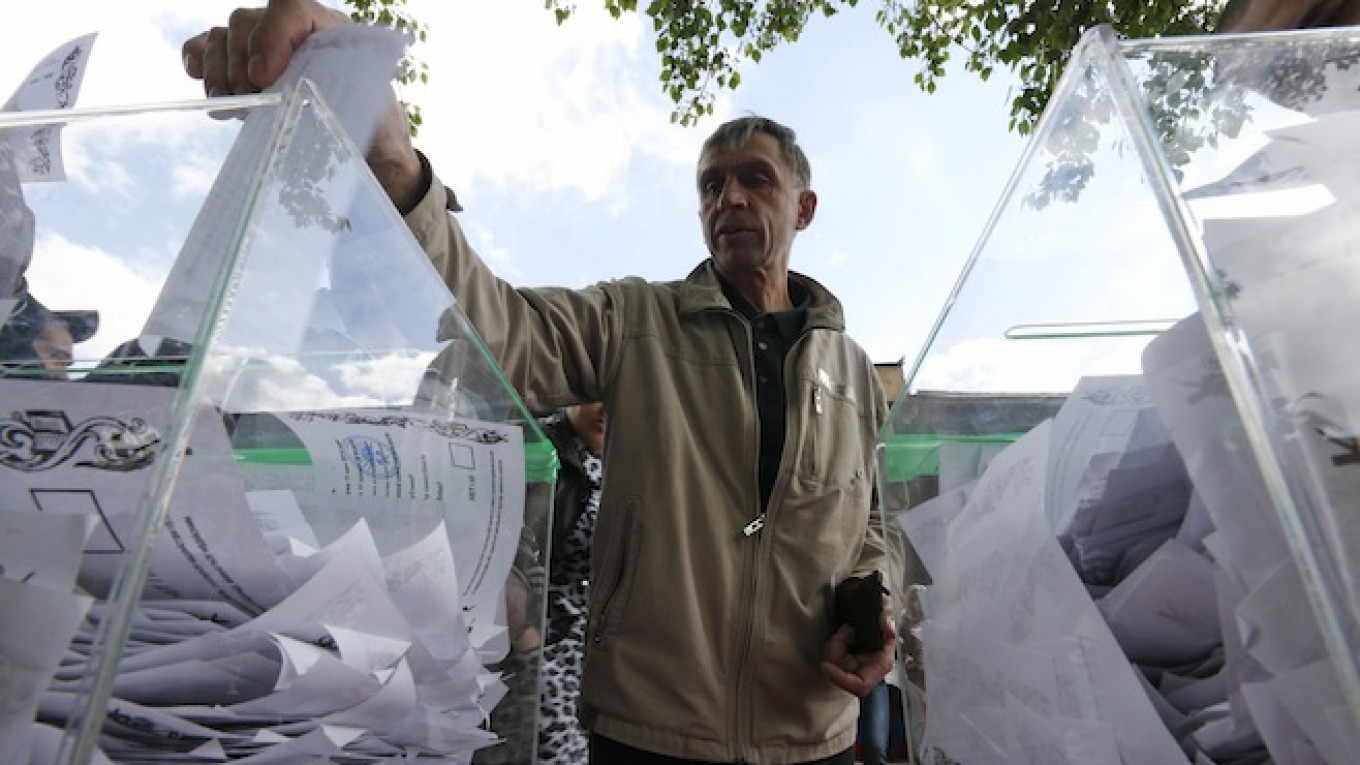Pro-Russian separatists in eastern Ukraine declared independence Monday for the Donetsk and Luhansk regions and those in Donetsk even asked to join Russia — a day after holding a hastily arranged vote that Ukraine's government and its Western allies said violated international law.
The Kremlin had no immediate response Monday to the annexation request, but issued a statement earlier that urged Ukraine's government in Kiev to hold talks with the pro-Russian insurgents in the east.
Organizers said 89 percent of those who cast ballots Sunday in the Donetsk region and about 96 percent of those who turned out in Luhansk voted for sovereignty for the sprawling areas that lie along Russia's border and form Ukraine's industrial heartland. Donetsk has about 4.4 million people and Luhansk has 2.2 million.
The insurgents said turnout topped 70 percent, but with no international election monitors around it was impossible to confirm such claims.
Luhansk spokesman Vasily Nikitin also said the Luhansk region would not vote in Ukraine's May 25 presidential election.
Ukraine's central government and the West have completely rejected Sunday's insurgent vote and accused Moscow of fomenting weeks of unrest in eastern Ukraine in a possible attempt to grab more land after annexing Crimea in March — accusations that Russia has denied.
"The farce, which terrorists call the referendum, will have no legal consequences except the criminal responsibility for its organizers," Ukraine's acting President Oleksandr Turchynov said in a statement.
The interim government in Kiev had been hoping the presidential vote would unify the country behind a new, democratically chosen leadership. Ukraine's crisis could grow even worse if regions start rejecting the presidential vote.
In Moscow, President Vladimir Putin's office voiced hope that the Organization for Security and Cooperation in Europe could help broker talks between the central government and the two provinces. The cautious stance — which contrasted with Russia's quick annexation of Crimea after a separatist vote there — appeared to show Russia favoring a negotiated solution to what has become the worst crisis between Russia and the West since the Cold War.
"The practical implementation of the referendum results should proceed in a civilized way without any throwbacks to violence through a dialogue between representatives of Kiev, Donetsk and Luhansk," the Kremlin said.
A Message from The Moscow Times:
Dear readers,
We are facing unprecedented challenges. Russia's Prosecutor General's Office has designated The Moscow Times as an "undesirable" organization, criminalizing our work and putting our staff at risk of prosecution. This follows our earlier unjust labeling as a "foreign agent."
These actions are direct attempts to silence independent journalism in Russia. The authorities claim our work "discredits the decisions of the Russian leadership." We see things differently: we strive to provide accurate, unbiased reporting on Russia.
We, the journalists of The Moscow Times, refuse to be silenced. But to continue our work, we need your help.
Your support, no matter how small, makes a world of difference. If you can, please support us monthly starting from just $2. It's quick to set up, and every contribution makes a significant impact.
By supporting The Moscow Times, you're defending open, independent journalism in the face of repression. Thank you for standing with us.
Remind me later.






